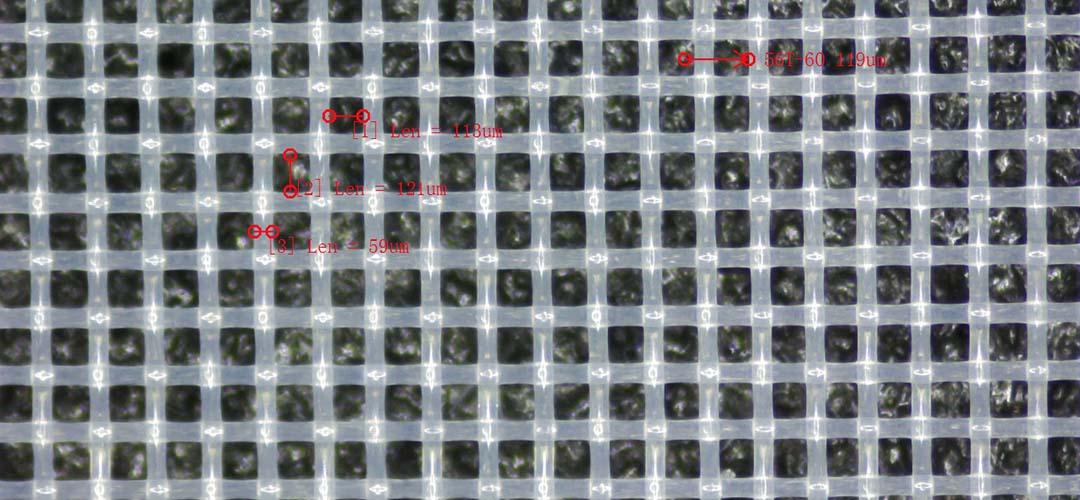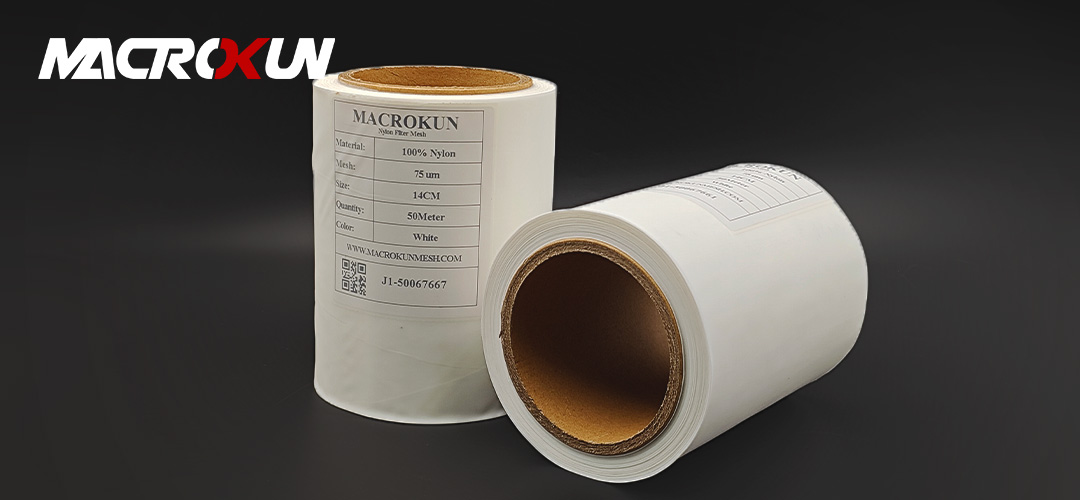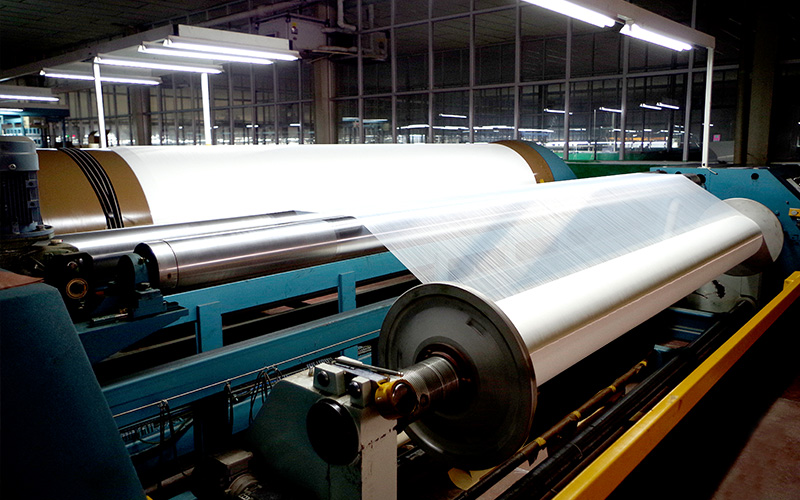When it comes to choosing the right material for filter screens, there are several options available on the market. Two popular choices are nylon mesh and metal screens. Both materials have their own set of advantages and disadvantages, but in this article, we will focus on the advantages of using nylon mesh for filter screens.
One of the main advantages of nylon mesh for filter screens is its flexibility. Nylon mesh is a lightweight and pliable material that can easily conform to different shapes and sizes. This flexibility makes it ideal for applications where the filter screen needs to be molded or shaped to fit a specific space or equipment.
Another advantage of nylon mesh is its resistance to corrosion. Unlike metal screens, which can rust and deteriorate over time, nylon mesh is resistant to corrosion and can withstand exposure to harsh chemicals and environments. This makes nylon mesh a durable and long-lasting option for filter screens in industrial settings.

Nylon mesh is also known for its high tensile strength. This means that it can withstand high levels of pressure and tension without breaking or tearing. This makes nylon mesh an ideal choice for filter screens that need to withstand heavy loads or high flow rates.
In addition to its strength and durability, nylon mesh is also easy to clean and maintain. Unlike metal screens, which can be difficult to clean and prone to clogging, nylon mesh can be easily washed or replaced when needed. This makes nylon mesh a cost-effective option for filter screens that require regular maintenance.
Furthermore, nylon mesh is a versatile material that can be used in a wide range of applications. From water filtration to air purification, nylon mesh can be customized to meet the specific needs of different industries and processes. This versatility makes nylon mesh a popular choice for filter screens in various industries, including food and beverage, pharmaceutical, and automotive.
Overall, the advantages of using nylon mesh for filter screens are clear. Its flexibility, resistance to corrosion, high tensile strength, ease of maintenance, and versatility make it a superior choice to metal screens in many applications. Whether you are looking for a durable and long-lasting filter screen for your industrial equipment or a cost-effective solution for your filtration needs, nylon mesh is a reliable option to consider.
Benefits of Metal Screens for Filtration
When it comes to filtration, choosing the right screen material is crucial. Metal screens have long been a popular choice for various filtration applications due to their numerous benefits. In this section, we will explore the advantages of using metal screens for filtration purposes.
One of the primary benefits of metal screens is their durability. Unlike nylon mesh screens, which can easily tear or wear out over time, metal screens are known for their strength and longevity. This makes them ideal for applications that involve heavy-duty filtration or require screens to withstand harsh conditions.

Metal screens also offer excellent resistance to chemicals and high temperatures. This is particularly important in industries such as oil and gas, where filtration processes often involve the handling of corrosive substances or exposure to extreme heat. Metal screens can withstand these challenging environments without compromising their performance, ensuring efficient and reliable filtration.
Another advantage of metal screens is their ability to provide precise filtration. The uniformity of the screen openings allows for consistent particle retention, ensuring that only the desired particles pass through while larger contaminants are effectively captured. This level of precision is especially crucial in industries such as pharmaceuticals or food processing, where even the smallest impurities can have significant consequences.
Furthermore, metal screens offer superior strength and stability compared to nylon mesh screens. This is particularly beneficial in applications that involve high-pressure filtration or require screens to maintain their shape under heavy loads. Metal screens can withstand these pressures without deformation or collapse, ensuring continuous and effective filtration.
In addition to their physical properties, metal screens also offer easy maintenance and cleaning. Unlike nylon mesh screens, which can become clogged or damaged during cleaning, metal screens can be easily cleaned using various methods, including backwashing or chemical cleaning. This not only saves time and effort but also ensures that the screens remain in optimal condition for prolonged use.
Moreover, metal screens are highly customizable. They can be manufactured in various sizes, shapes, and configurations to suit specific filtration requirements. This versatility allows for greater flexibility in designing filtration systems and ensures that the screens can be seamlessly integrated into existing processes.
Lastly, metal screens are environmentally friendly. Unlike nylon mesh screens, which are made from synthetic materials and can contribute to plastic waste, metal screens are recyclable and can be reused or repurposed. This makes them a sustainable choice for filtration applications, aligning with the growing demand for eco-friendly solutions across industries.
In conclusion, metal screens offer numerous benefits for filtration applications. Their durability, resistance to chemicals and high temperatures, precise filtration capabilities, strength and stability, easy maintenance and cleaning, customization options, and environmental friendliness make them a superior choice compared to nylon mesh screens. Whether it is for heavy-duty filtration, challenging environments, or specific industry requirements, metal screens provide the reliability and efficiency needed for effective filtration processes.
When it comes to choosing the right material for filter screens, durability and longevity are key factors to consider. Nylon mesh and metal screens are two popular options, each with its own set of advantages and disadvantages. In this article, we will compare the durability and longevity of nylon mesh and metal screens to help you make an informed decision.
| Model | Mesh Count (/cm) |
Mesh Count (/inch) |
Thread Dia (um) |
Mesh Opening (um) |
Thickness (um) |
Weight (g/m2) |
| NL4/1950 | 4 | 10 | 550 | 1950 | 1100 | 307 |
| NL5/1500 | 5 | 13 | 500 | 1500 | 1000 | 318 |
| NL6/1267 | 6 | 15 | 400 | 1267 | 800 | 244 |
| NL7/1079 | 7 | 18 | 350 | 1079 | 700 | 218 |
| NL8/900 | 8 | 20 | 350 | 900 | 700 | 249 |
| NL9/861 | 9 | 23 | 250 | 861 | 500 | 143 |
| NL9/811 | 9 | 23 | 300 | 811 | 600 | 206 |
| NL10/750 | 10 | 25 | 250 | 750 | 500 | 159 |
| NL10/700 | 10 | 25 | 300 | 700 | 600 | 229 |
| NL12/583 | 12 | 30 | 250 | 583 | 500 | 191 |
| NL12/533 | 12 | 30 | 300 | 533 | 600 | 274 |
| NL14/514 | 14 | 36 | 200 | 514 | 340 | 142 |
| NL16/425 | 16 | 40 | 200 | 425 | 340 | 160 |
| NL20/350 | 20 | 50 | 150 | 350 | 255 | 113 |
| NL20/300 | 20 | 50 | 200 | 300 | 340 | 200 |
| NL24/267 | 24 | 60 | 150 | 267 | 255 | 135 |
| NL28/237 | 28 | 70 | 120 | 237 | 204 | 101 |
| NL30/213 | 30 | 76 | 120 | 213 | 204 | 110 |
| NL32/213 | 32 | 80 | 100 | 213 | 170 | 80 |
| NL36/178 | 36 | 90 | 100 | 178 | 170 | 90 |
| NL40/150 | 40 | 100 | 100 | 150 | 170 | 100 |
| NL43/153 | 43 | 110 | 80 | 153 | 136 | 70 |
| NL48/128 | 48 | 120 | 80 | 128 | 136 | 77 |
| NL56/119 | 56 | 140 | 60 | 119 | 102 | 50 |
| NL64/96 | 64 | 160 | 60 | 96 | 102 | 58 |
| NL72/89 | 72 | 180 | 50 | 89 | 85 | 45 |
| NL80/75 | 80 | 200 | 50 | 75 | 85 | 50 |
| NL100/57 | 100 | 250 | 43 | 57 | 73 | 46 |
| NL110/48 | 110 | 280 | 43 | 48 | 73 | 52 |
| NL120/48 | 120 | 300 | 35 | 48 | 60 | 37 |
| NL120/40 | 120 | 300 | 43 | 40 | 73 | 55 |
| NL130/42 | 130 | 330 | 35 | 42 | 60 | 40 |
| NL130/34 | 130 | 330 | 43 | 34 | 73 | 61 |
| NL140/36 | 140 | 350 | 35 | 36 | 60 | 43 |
| NL157/25 | 157 | 400 | 43 | 25 | 73 | 74 |
| NL180/20 | 180 | 450 | 39 | 20 | 66 | 68 |
| NL200/15 | 200 | 500 | 39 | 15 | 66 | 76 |
| NL220/10 | 220 | 550 | 39 | 10 | 66 | 84 |
| NL240/5 | 240 | 600 | 39 | 5 | 66 | 91 |
Nylon mesh is a synthetic material that is known for its strength and flexibility. It is resistant to abrasion and tearing, making it a durable option for filter screens. Nylon mesh is also lightweight, which can be beneficial for applications where weight is a concern. However, nylon mesh is not as resistant to high temperatures as metal screens, which can limit its use in certain environments.

Metal screens, on the other hand, are typically made from stainless steel or other metals that are known for their strength and durability. Metal screens are highly resistant to corrosion, making them a good choice for applications where exposure to moisture or chemicals is a concern. Metal screens are also able to withstand high temperatures, making them suitable for use in a wide range of environments.
In terms of longevity, both nylon mesh and metal screens have their own advantages. Nylon mesh is less likely to rust or corrode over time, which can extend its lifespan compared to metal screens. However, nylon mesh is more prone to stretching and sagging, which can affect its performance over time. Metal screens, on the other hand, are less likely to stretch or sag, which can help maintain their effectiveness over a longer period.
When it comes to maintenance, nylon mesh is generally easier to clean and maintain compared to metal screens. Nylon mesh can be washed with soap and water, while metal screens may require more specialized cleaning solutions to remove built-up debris or contaminants. However, metal screens are less likely to trap particles or debris, which can help maintain their effectiveness over time.
In conclusion, both nylon mesh and metal screens have their own strengths and weaknesses when it comes to durability and longevity. Nylon mesh is lightweight and resistant to abrasion, but may stretch or sag over time. Metal screens are highly durable and resistant to corrosion, but may require more maintenance to keep them clean and free of debris. Ultimately, the choice between nylon mesh and metal screens will depend on the specific requirements of your application and the environmental conditions in which the filter screens will be used.
When it comes to choosing the right filter screen for your application, there are several factors to consider. One of the most important decisions you’ll need to make is whether to go with a nylon mesh or a metal screen. Both options have their advantages and disadvantages, so it’s crucial to weigh them carefully before making a final decision.
One of the primary considerations when choosing between nylon mesh and metal screens is the level of filtration required. Nylon mesh screens are known for their fine filtration capabilities, making them ideal for applications where precision is crucial. They can effectively capture small particles and contaminants, ensuring a high level of filtration efficiency. On the other hand, metal screens are generally better suited for applications that require coarser filtration. They may not be as effective at capturing tiny particles, but they offer excellent durability and can withstand harsh conditions.
Another factor to consider is the material compatibility. Nylon mesh screens are compatible with a wide range of chemicals and substances, including acids, alkalis, and organic solvents. This versatility makes them suitable for various industries, such as pharmaceuticals, food processing, and wastewater treatment. Metal screens, on the other hand, may not be as chemically resistant as nylon mesh screens. They can corrode or react with certain substances, limiting their applicability in some industries.
Durability is another crucial consideration. Nylon mesh screens are generally less durable than metal screens. They can be prone to tearing or stretching, especially when exposed to high temperatures or abrasive materials. Metal screens, on the other hand, are highly durable and can withstand extreme conditions. They are less likely to tear or degrade over time, making them a more long-lasting option. However, it’s worth noting that metal screens may be more susceptible to corrosion, depending on the material used.
Maintenance and cleaning requirements should also be taken into account. Nylon mesh screens are relatively easy to clean and maintain. They can be washed or soaked in cleaning solutions to remove any accumulated debris or contaminants. Metal screens, on the other hand, may require more intensive cleaning methods, such as high-pressure washing or chemical treatments. Additionally, metal screens may need regular inspections to identify and address any signs of corrosion or damage.
Cost is often a significant factor in decision-making. Nylon mesh screens are generally more affordable than metal screens. They are readily available and can be easily replaced if damaged. Metal screens, on the other hand, tend to be more expensive upfront. However, their durability and long lifespan can offset the initial investment in the long run.
In conclusion, choosing between nylon mesh and metal screens requires careful consideration of various factors. Nylon mesh screens offer fine filtration capabilities and chemical compatibility, but they may be less durable and require more frequent replacement. Metal screens, on the other hand, provide excellent durability and can withstand harsh conditions, but they may not offer the same level of filtration precision. Ultimately, the choice depends on the specific requirements of your application and the trade-offs you are willing to make.
Pre: Comparing Micron Nylon Mesh Screens: Which One Fits Your Needs?
Next: Why Nylon Mesh for Filter Cloth Ensures High Filtration Accuracy

MACROKUN has established long-term and stable cooperative relations with many transportation companies such as China Post, DHL, FEDEX, USPS, UPS, etc. Of course, MACROKUN can also provide air and sea transportation. The powerful logistics system enables all MACROKUN'S Printing Mesh, Filter Mesh and Filter Bags and so on to be easily and efficiently transported to any place. For quotes and inquiries, please email our sales team.





